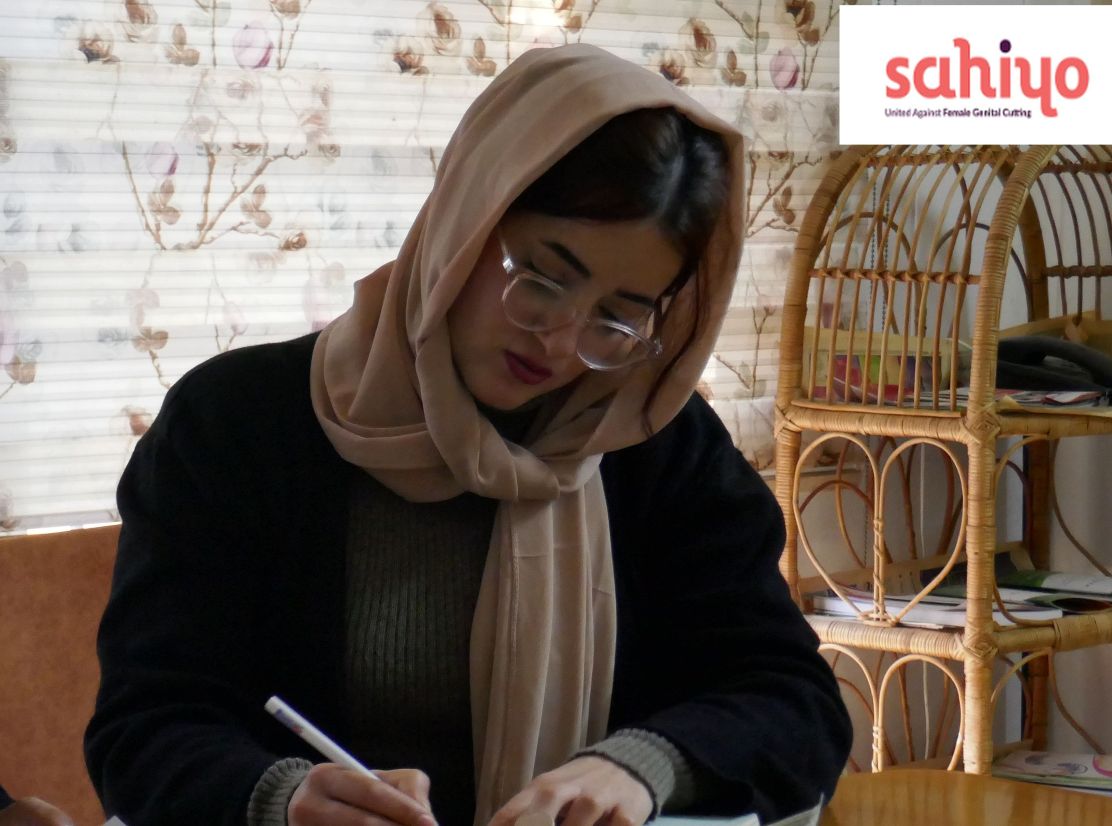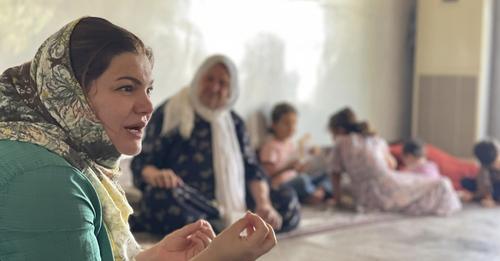An Interview Sahiyo conducted about the anti-FGM Campaign of Wadi.

Bakhan Jamal, Picture: Wadi
Bakhan is an activist and advocate against female genital cutting (FGC), and she is passionate about educating young girls on the topic. Bakhan also works as a Project Supervisor for Wadi, an organization promoting self-help programs in the Middle East such as monitoring and lobbying for citizen rights: rehabilitation projects for long-term prisoners, literacy programs, education and training for women, public awareness of and ending domestic violence as well as campaigns against FGC. Bakhan specifically assists in the organization’s programs to protect girls from FGC.
I had the honor of interviewing Bakhan about her work and what inspired to get involved in work to end FGC.
“I came to know FGC very late in my life, because I graduated college and I was searching for a job. So I was searching for a position as an English translator, and I came across this German organization called Wadi and they were working on FGC. I remember the first week when I was starting [at Wadi] and hearing about FGC and thinking I had never heard of it happening in my own community. It was really shocking for me to hear something like that.”
“I learned that a lot of people in my life and my family and friends had undergone FGC.”
“I started thinking about whether I had friends or family members that had gone through FGC without me knowing. I began asking people in my family and other people I knew if they had gone through the practice. And I learned that a lot of people in my life and my family and friends had undergone FGC.”
“I learned that two of my cousins were mutilated. I remember being super young and we were in our grandmother’s house and two of my cousins went somewhere and came back and then I saw them go into another room and heard them giggling and I thought I was like an outcast. I was separated from them for some reason.”
“I asked my mom about what happened to my cousins and how come it didn’t happen to me? She said your dad didn’t let them, he said that no one will hurt my girls.”
“I was fortunate to have someone in my life and my family to protect me, but at the same time I was feeling very bad for my cousins.”
First in the family
Bakhan was the first of her family to not undergo the practice. Instead, she bore witness to her mother talking about her own experiences with FGC.
“She said ‘I’m also mutilated,’ and I asked her ‘how do you feel?’ She said ‘I don’t think about it because it’s so common.’”
Learning about her family’s history with the practice inspired Bakhan to dive deeper into her activism work.
“The more I worked [to end FGC], the more I realized how unaware society is about the practice and how dangerous that can be.”
“I have been working with Wadi for six years now, and I still believe that there will never be a point where I am not shocked by the stories I hear from survivors. We also do field visits and we go to the villages where FGC is still practiced, because in that society, especially in the cities, it’s not as common.”

FGC Awareness Course in a Kurdish village, Picture: Wadi
When I asked Bakhan about the impact of those visits, she told me of how deeply rooted the practice can be in the social norms of the communities.
“I sit and talk with people and they still totally believe in the practice and they are proud of it and they are thinking of mutilating their daughters.”
“My last experience with a field visit was a month ago. We went to a rural area and we were doing our normal seminars and there was a very young girl, almost the same age as me and she had a daughter and we were talking about FGC. At the end I asked her ‘do you still believe in FGM’ because I assumed that after the conversation we had that she wouldn’t. But she was so firm on her beliefs that FGC is good and should be done.”
“If you stop working, the practice resurfaces. We always try to go back to those places after a couple of months or a year. We go back in order to find out whether they are doing it again or not. And sometimes we go there again, and they say they’ve stopped doing FGC because there was an organization coming and they knew it was us.”
“[These conversations with villagers tend] to not be immediately welcoming because this is a sensitive topic. So we always make sure when we go that we don’t start with FGC. We try to talk about something related to it like other health issues.”
“I want people to question more. I never asked why this is happening. Curiosity is something good to have.”
Bakhan also spoke about the importance of involving community leaders, particularly men in the work against FGC, since they have more decision making influence in these societies.
“We forget about the male position in this. Most of the time in our community men do not know about FGC. They are completely unaware of it and when you have a victim of FGC and they get married to a man and the man is dealing with a trauma which he does not understand, which creates issues within marriages. So we need to open the conversation to men.”
In looking to the future, I thought it was important to ask Bakhan what advice she would give to her younger self and other girls. She said:
“I want people to question more. I never asked why this is happening. Curiosity is something good to have. I think this is one of the things young people should always ask why things are happening, and I think that’s advice for myself, don’t go with the flow, ask questions. Know what you are getting yourself into.”
